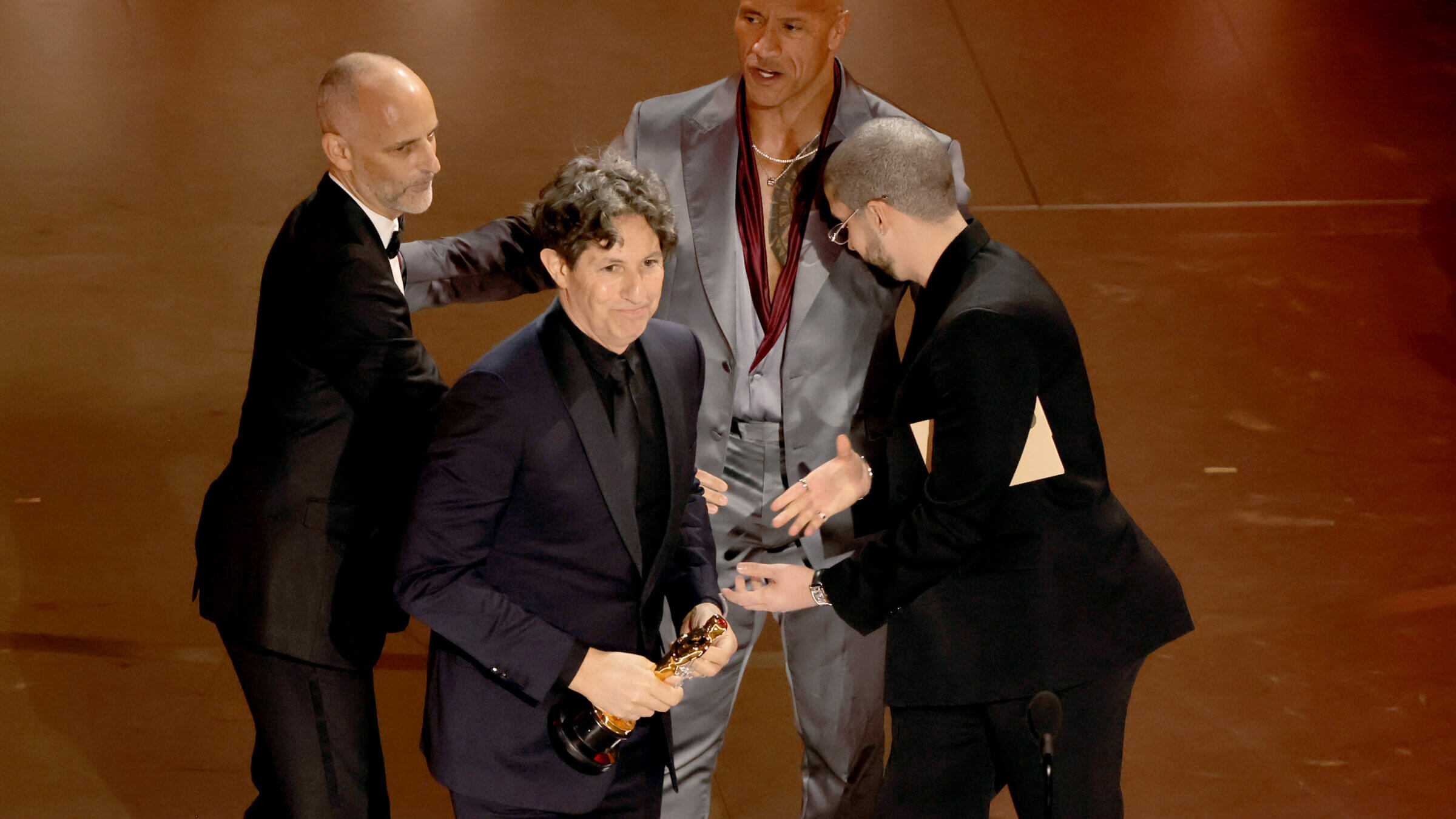No, Jonathan Glazer did not ‘refute his Jewishness’
Jonathan Glazer #JonathanGlazer


Jonathan Glazer, with producers Leonard Blavatnik and James Wilson accept the Oscar for Best International Film. Photo by Kevin Winter/Getty Images

By PJ Grisar March 11, 2024
It seems that even before he finished accepting his Oscar — or before any music played him off — critics slammed Zone of Interest director Jonathan Glazer for his speech Sunday night.
Abe Foxman, the former head of the Anti-Defamation League, posted to X that while he was pleased that Glazer’s film won for best international film “as a survivor of the Holocaust I am shocked that the director would slap the memory of over 1 million Jews who died because they were Jews by announcing he refutes his Jewishness.”
It was a case of selective hearing — and also an unwieldy sentence.
What Glazer, who didn’t quite deliver the speech with an orator’s bravura or impeccable diction, really said, reading off a paper, was that he and his fellow winners Leonard Blavatnik and James Wilson “stand here as men who refute their Jewishness and the Holocaust being hijacked by an occupation which has led to conflict for so many innocent people.”
A clearer wording may have reed, “we refute the occupation’s hijacking of Jewishness and the Holocaust to justify a conflict that has caused pain for so many innocent people.” (This is pretty standard verbiage in pro-Palestinian and progressive Jewish circles.)
To hear that Glazer was refuting his Jewishness — and in the next breath the Holocaust — is absurd. He committed years of his life to making The Zone of Interest, based incredibly loosely on Martin Amis’ novel of the same name, an intricately filmed drama about the commandant of Auschwitz and his domestic banality of evil.
Foxman is right that it would indeed be shocking for a person who had made this film to use his time on the Oscar stage to “refute his Jewishness.” And X’s community notes seem to agree with me, having placed the full quote beneath Foxman’s post.
Foxman wasn’t alone in condemning Glazer’s speech, which went on to address human suffering — and the dehumanization — on both sides of this latest war, including Gazans under siege and the victims of Oct. 7.
John Podhoretz of Commentary posted something unprintable about where he thinks Jonathan Glazer should put his first Oscar. In our inbox, Ari Ingel from the Creative Community for Peace issued a statement that read “It’s disgusting to see that when the director of a Holocaust movie wins an award, he uses his platform to denounce his own Jewishness and co-opt the tragedy of the holocaust [sic] for his own political cause.”
Michael Freund, a former advisor to Netanyahu posted to X that Glazer is “a self-hating Jew of the worst sort who exploits the Holocaust to attack Israel in public at the Oscars ceremony.”
In fact, Glazer was accusing Israel of co-opting the Holocaust and, again, he didn’t denounce anything but the ongoing war’s well-documented suffering on both sides.
So what’s happening here? Did people only hear a fragment of Glazer’s speech, or did they preemptively choose not to like what he was saying because it was critical of Israel? Or, is the Holocaust in fact a taboo when it comes to the current war, even as many are keen to point out that Oct. 7 represented the greatest loss of Jewish life since the Holocaust.
(There’s another option, which is that critics may have read an unfortunately abridged quote in Variety where Glazer “refuted his Jewishness” full stop.)
Certainly there is ample room to disagree with Glazer, but when no one engages in good faith with what he actually said, you aren’t disagreeing with him but with a strawman.
There is an irony to all this. Glazer, a veteran director of commercials, music videos and a handful of critically acclaimed films, is known for his precision. In his speech, being less than clear with his words left him open to being taken out of context or selective quotation.
But then, Glazer wasn’t winning for speech and debate. He won for a film that asks difficult questions of its audience, daring them to interrogate their own biases and their own numbed responses to human tragedy.
The Zone of Interest — which also nabbed an award for its sound design, that meticulously recreated everything from gunshots to the rumble of Auschwitz’s industrial killing — is all about what we can choose to ignore for the sake of our own comfort.
Those misunderstanding what Glazer said — or willfully distorting it — are only proving his point.